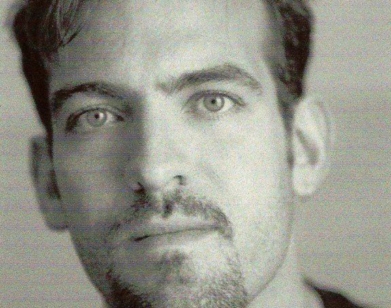I read memoirs to get glimpses into others’ lives, peek into windows on houses I can never live in, and explore human truths and realities far removed from my own. To read a memoir is to increase my empathy and expand commonality, and to read How We Fight for Our Lives is to conjoin someone’s ferocious becoming with a bracing readerly imperative. It is to be invited into a gratifying narrative of reclaiming trauma and pain and creating security, control, and a sense of self. In his coming-of-age story, Saeed Jones shows us how he had to, how others forced him to, and how we are all constantly in a fight for existence.
- American Writers Museum presents a discussion with poet Saeed Jones about his memoir 'How We Fight for Our Lives.' This conversation originally took place Oc.
- Saeed Adyani / Netflix. 'Marvel's Jessica Jones' is set in the Marvel Cinematic Universe. 'Orange Is the New Black' is based on a memoir by Piper Kerman.
- How We Fight for Our Lives: A Memoir - Ebook written by Saeed Jones. Read this book using Google Play Books app on your PC, android, iOS devices. Download for offline reading, highlight, bookmark or take notes while you read How We Fight for Our Lives: A Memoir.
I first met Julia Koets, author of The Rib Joint: A Memoir in Essays and the South Carolina Poetry Book Prize winner Hold Like Owls, at AWP in Los Angeles during the spring of 2016 when I had the pleasure of serving on a panel she organized and moderated titled “LGBTQ Memoir: Story as Survival.”.

Saeed Jones Poems
In four remarkable and well-crafted acts, Saeed examines his identity and shows us the ways in which society eliminates gay Black men’s experiences from predominately white spaces, especially in the South. As he attends college and starts to build his confidence, he shares the destructive choices that lead to an eruption of violence after an intimate encounter turns death-defying. Through the start of his career, he sheds pieces of himself along the way, learning how to meld and blend in to the detriment of his self-realization, which eventually comes with hard-won self-reliance and comfortable aloneness where painful isolation once lived. With daring subtext, this book firmly implicates readers to unpack our complicated relationships to power: how we give it up, how it gets taken away, and who gets to wield it. It’s the most constant of our battles.
Looming large in the story are the women in Saeed’s life: his mother, hesitant to accept his sexuality, and his grandmother, who is even more reticent and religious. The familial dynamics are messy and honest, but also tender. As Saeed grows into adulthood and his mother becomes progressively sicker from a terminal illness, grief starts to permeate the book’s pages. At first it’s for their relationship, which is strained by his silenced sexual identity, and later for her death, which catapults Saeed into finally finding safety. There’s a heartbreaking beauty in How We Fight for Our Lives, a quest for radical acceptance, and an understanding that in order to become our true selves we may become burdened by our actions toward our parents and by those actions committed by them. We cannot extricate ourselves from our parents, nor them from us, and it is sometimes only in reference to them that we can know ourselves. Saeed generously constructs and builds a space out of words and emotions to articulate and relay this unfathomable feeling of betrayal.

Read this book for its arresting language, as Saeed is a poet, but also read it for the joy his journey holds. It’s a necessary experience in today’s world, one that requires more compassion, care, and sensitivity. I had the pleasure of reading this book uninterrupted during a cross-country airplane ride. Captivated for a full six hours, and sitting very close to a stranger, I openly wept during the last few chapters. Alarmed by my shaking shoulders and loud sniffles, they looked over at my tear-streaked face as I closed Saeed’s book and managed to whisper out to no one in particular, “Wow.”
Saeed Jones Book


NPR’s sites use cookies, similar tracking and storage technologies, and information about the device you use to access our sites (together, “cookies”) to enhance your viewing, listening and user experience, personalize content, personalize messages from NPR’s sponsors, provide social media features, and analyze NPR’s traffic. This information is shared with social media, sponsorship, analytics, and other vendors or service providers. See details.
Saeed Jones Biography
You may click on “Your Choices” below to learn about and use cookie management tools to limit use of cookies when you visit NPR’s sites. You can adjust your cookie choices in those tools at any time. If you click “Agree and Continue” below, you acknowledge that your cookie choices in those tools will be respected and that you otherwise agree to the use of cookies on NPR’s sites.
